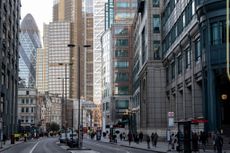Cars Motorbikes
The latest news, updates and opinions on Cars Motorbikes from the expert team here at MoneyWeek
-

'EV maker Faraday Future will crash'
Faraday Future Intelligent Electric is failing dismally to live up to its name, says Matthew Partridge
By Dr Matthew Partridge Published
-

Motorists warned about scam car finance compensation calls
As the Financial Conduct Authority prepares to set up a car finance compensation scheme, it has also warned about scammers claiming to offer payouts. We look at who could be eligible for the scheme, and how to spot a scam
By Ruth Emery Last updated
-

Car finance mis-selling judgment: a big blow for the banks
Opinion The car finance mis-selling judgment could still be disastrous for big finance even though banks dodged the worst possible outcome
By Matthew Lynn Published
Opinion -

Take a look under the bonnet of the classic car market
Dearer money has taken the momentum out of the classic car market, says Chris Carter
By Chris Carter Published
-

Global car shares slide amid lower demand in China – what happens now?
Has the car sector run into trouble? Britain’s Aston Martin and Germany’s Volkswagen are among the key automobile brands that have issued profit warnings.
By Alex Rankine Published
-

Volkswagen mulls closure of German factories
Why is Volkswagen considering the closures and how is the carmaker performing?
By Dr Matthew Partridge Published
-

Is China winning the electric car race?
China now sells more electric cars than conventional ones within its territory. Western countries seem determined to stop them from crossing their borders. Why?
By Simon Wilson Published
-

Car finance explained: everything you need to know when buying a car
Advice From personal contract to hire purchase and leasing, we explain the different routes to getting behind the wheel
By Marc Shoffman Last updated
Advice -

Ineos Grenadier: a striking and rugged off-roader
Reviews The old Land Rover is dead; long live the Ineos Grenadier.
By Jasper Spires Published
Reviews
